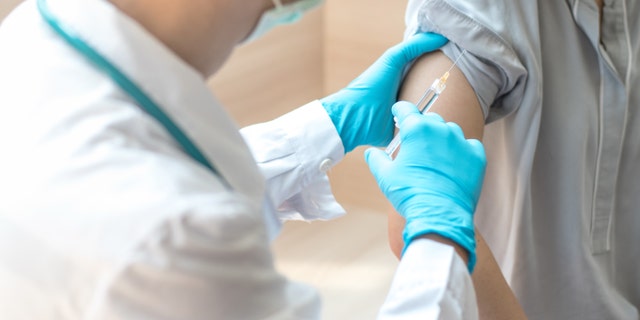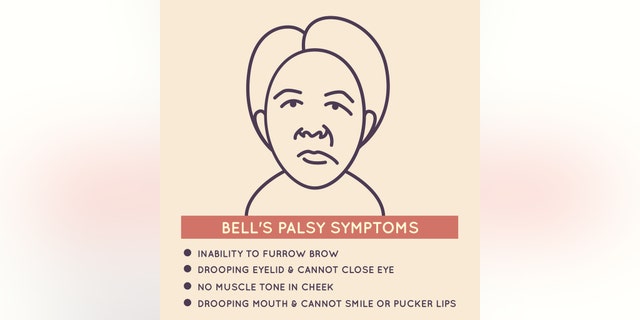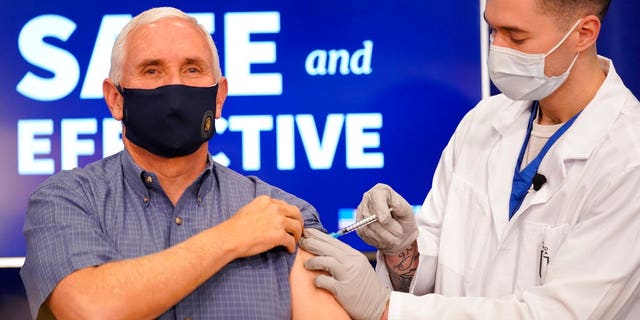After a review surfaced Tuesday on data behind Moderna’s COVID-19 jab, many have since caught onto several reported incidents of Bell’s palsy, or facial paralysis, among the trial's vaccine recipients.
Documents posted from a U.S. Food and Drug Administration committee review cited three incidents of facial paralysis among Moderna's vaccine recipients and one in the placebo group. However, due to limited data," a causal relationship to vaccination cannot be concluded at this time," the FDA said.
A top expert on Bell's palsy at Johns Hopkins Medicine recently told Fox News that the incidence of facial paralysis among trial participants is actually lower than what naturally occurs, and said the Bell's palsy can't be directly attributed to the COVID-19 vaccines.
FDA 'RAPIDLY WORKING' TO FINALIZE MODERNA COVID-19 VACCINE APPROVAL

Also, FDA documents posted ahead of the now-authorized Pfizer vaccine reported several cases of Bell’s palsy in the vaccine group, though none in the placebo group and the FDA wrote: "the four cases in the vaccine group do not represent a frequency above that expected in the general population." Those cases happened at 3, 9, 37 and 48 days after vaccination.
Nevertheless, the FDA advised watching for Bell’s palsy among recipients of Pfizer and Moderna's vaccines, the latter of which is pending formal approval from the federal agency, upon administration to the masses.
In general, the exact cause of Bell's palsy is unknown, and it usually occurs on one side of the face, though it can occur on both sides on rare occasions, according to the National Institutes of Health. Though the severity of symptoms varies, they usually improve in a few weeks, and an estimated 40,000 people are affected by this type of paralysis in the U.S. every year.

Dr. Kofi Boahene, an expert in head and neck surgery at Johns Hopkins Medicine, told Fox News that the incidence of Bell's palsy is between 15-30 cases per 100,000 people. He said the facial paralysis among trial participants can't be directly tied to the vaccine.
"By extrapolation, the computed incidence of Bell's palsy among both vaccine studies is lower than what naturally occurs," Boahene wrote to Fox News. "I will agree that the occurrence of Bell's palsy among the vaccinated volunteers cannot be directly attributed to the vaccine."
Of note, as previously reported, the FDA independent committee didn't find any specific safety concerns associated with Moderna's vaccine, and Pfizer's product has already passed the approval process required for emergency authorization. Health care workers who have been manning the coronavirus front lines for the last 10 months continue to line up for their vaccinations, the first of which rolled out on Monday. Nursing home residents have also started to receive vaccinations, as have some government officials.

Vice President Mike Pence receives a Pfizer-BioNTech COVID-19 vaccine shot at the Eisenhower Executive Office Building on the White House complex, Friday, Dec. 18, 2020, in Washington. Karen Pence, and U.S. Surgeon General Jerome Adams also participated. (AP Photo/Andrew Harnik)
PENCE GETS COVID-19 VACCINE TO SHOW IT'S 'SAFE AND EFFECTIVE'
The cases of Bell's palsy reported among Moderna's trial participants cropped up 22, 28 and 32 days after vaccination, with the placebo-injected patient experiencing facial paralysis 17 days after injection. Three-quarters of those cases were at the least reported as "resolving," in the FDA documents.
One of the cases involved a 67-year-old diabetes patient hospitalized for a stroke. About a month after she was vaccinated, she experienced "new facial paralysis," though it was reported as "resolving."
Another patient who received Moderna’s vaccine was a 30-year-old who developed facial paralysis 28 days after vaccination, with a coinciding upper respiratory infection, though that was reported as resolved.
Finally, among the vaccine group, an elderly patient also developed facial paralysis 22 days after vaccination, reported as ongoing at the time of a safety report submitted in late November.
The fourth "resolving" case cropped up in a 52-year-old male patient who didn’t receive the vaccine, but the placebo, 17 days after infection.
Boahene, the expert at Johns Hopkins, said Bell's Palsy occurs in all ages, and while certain risk factors may be predisposing, "none is apparent among the reported cases."
"The history, age and timing between the injection and occurrence of the Bell's palsy [does not] lend to any specific conclusions about cause and effect," he said.
Article From & Read More ( Pfizer, Moderna COVID-19 vaccines and facial paralysis: What to know - Fox News )https://ift.tt/3gZAqIs
Health
Bagikan Berita Ini














0 Response to "Pfizer, Moderna COVID-19 vaccines and facial paralysis: What to know - Fox News"
Post a Comment